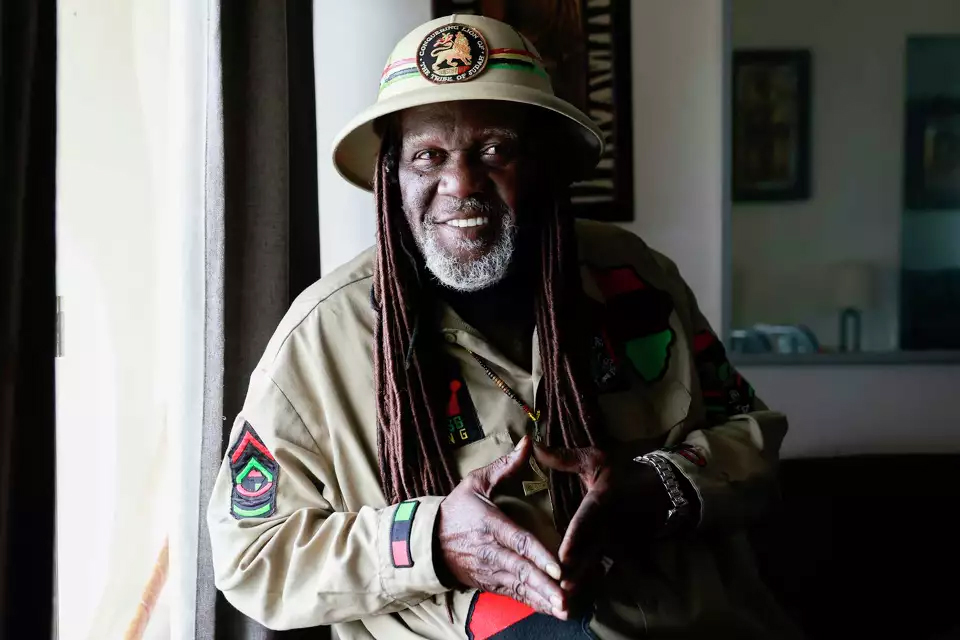Patricia Guevara’s pain started two years ago — in her back and her knees. At first, her father, Jose Guevara, wondered whether the seventh-grader was trying to get out of going to school.
But soon it became clear Patti wasn’t faking. Guevara’s daughter’s pain only worsened — soon she was limping. Not long after, she couldn’t walk.
Doctors brushed off her father’s concerns, blamed her symptoms on her weight and sent her home with aspirin.
“They didn’t want it to get into her bones,” he said. “And neither did I.”
Guevara took her to “basically every hospital” in the area. Finally, in July 2022, physicians at Stanford Children’s Health found a 4-inch tumor on Patti’s spine pressing against her sciatic nerve and her spine — and rushed her into surgery. She had Ewing sarcoma, a rare cancer that strikes children and young adults.
“They didn’t want it to get into her bones,” he said. “And neither did I.”
When doctors discovered Patti’s cancer, her dad was two years sober and getting his life back on track after drug use, homelessness and the end of his marriage.
He’d almost lost custody of his children — Patti, 14, Richard, 13, and Emiliee, 5 — in 2018, over the drug use, though he describes an ensuing court program as “the kick in the pants I needed.”
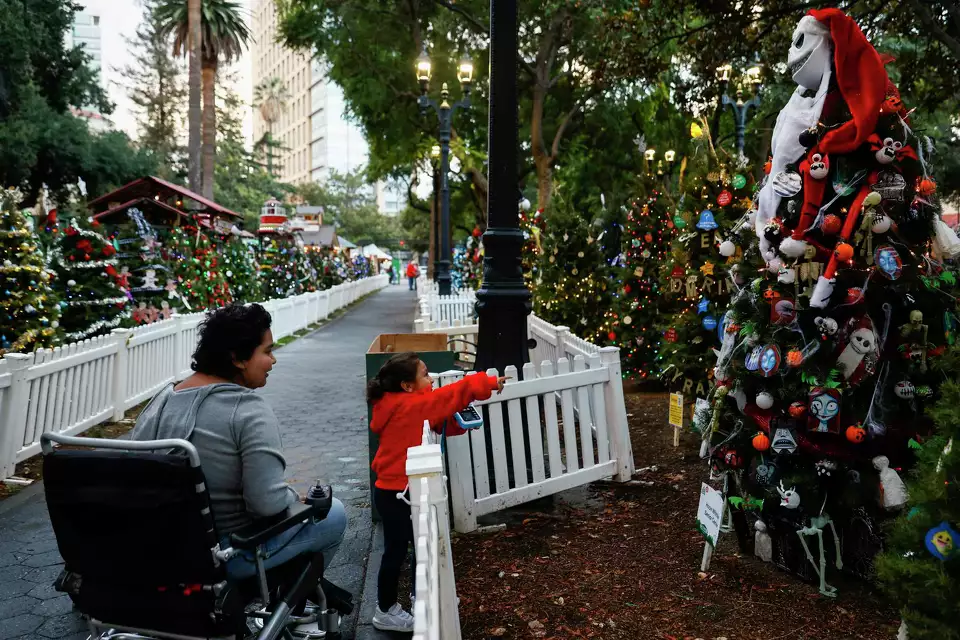
He and his partner split up during the COVID pandemic, with Guevara taking care of the children.
Soon he was shuttling Patti to and from radiation and chemotherapy appointments, while working full time at Flex, a global electronics company, where he was a “building specialist.”
But long, sleepless hours by Patti’s bed at night — and work and other family duties during their day — took their toll.
“For the last year, I’ve looked like I’ve been smoking crack,” he said.
He had to quit his job to care for Patti and Richard full time, and sometimes Emiliee. Assistance from the Chronicle Season of Sharing Fund helped Guevara cover rent as he transitioned from working full time at Flex to being Patti’s full-time caregiver, which he is paid for through California’s In-Home Supportive Services Program.
Season of Sharing works throughout the year to prevent homelessness and hunger in the Bay Area’s nine counties. All donations directly help people in need.
He sleeps in one room in their run-down second-story apartment in Milpitas. Patti takes another, and Richard sleeps on a couch in the living room. Emiliee often stays with Jose’s mother, who lives in nearby San Jose. Religious paintings adorn the walls.
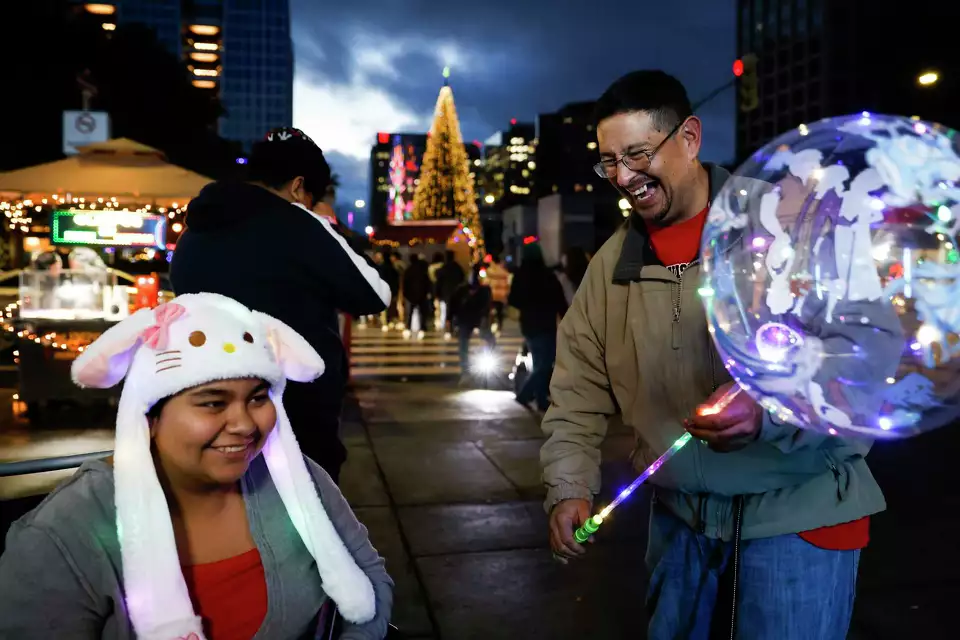
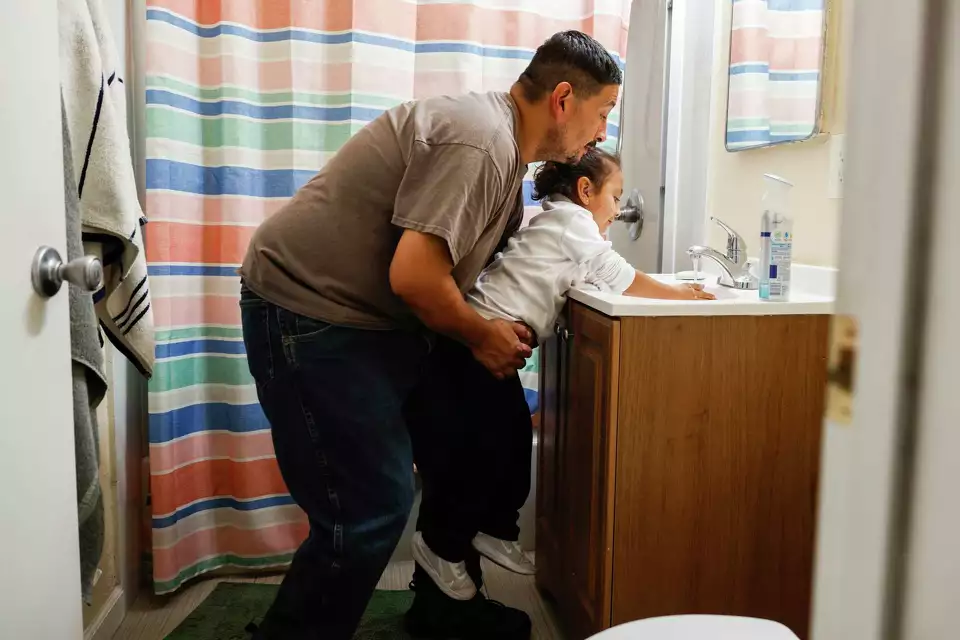
“I almost died at Christmas,” she said, voice chipper with teenage confidence. “The one thing on people’s mind when they hear ‘cancer’ is death, and if they’re going to make it.”
Over the past months Patti has undergone 19 rounds of chemotherapy and 17 rounds of radiation. She almost died three times during the course of treatment, once because of low platelets, then because of a low white blood cell count, and again because she didn’t have enough electrolytes in her system.
Throughout the ordeal, Guevara leaned on his faith. His daughter, meanwhile, is remarkably sanguine, and she’s got the gallows humor to match.
“I almost died at Christmas,” she said, voice chipper with teenage confidence. “The one thing on people’s mind when they hear ‘cancer’ is death, and if they’re going to make it.”
She tried to keep her mind distracted, which helped a lot. Now she’s focused on getting better. She won’t ever be able to walk normally, doctors say, but she’s hoping she will regain enough mobility to walk with a cane.
Her doctors will be watching carefully to see whether the cancer returns, with annual testing for years.
As for Patti, she dreams of being a doctor someday.
“You can blame my mom for getting me into medical shows (on TV), and me being in the hospital for a year,” she said with a laugh.
She especially hopes to be a surgeon. She wasn’t sure whether her mobility issues might prevent that — but then saw a documentary about a local surgeon who uses a wheelchair.
Jose Guevara says he is ready to go back to work at Flex. And he’s hoping to enroll at De Anza College to get his associate’s degree in environmental sciences.
He’s hoping to be able to move his family out of their apartment, which sits above a unit that houses 17 residents.
He’d like to move into a first-floor unit, so he doesn’t have to carry Patti up and down the stairs.
And it would be nice to live closer to his mother and other relatives in San Jose. That way they could help care for the children, who would also be closer to their schools.
“Going through this, it’s made us closer, me and her,” he said, before giving his daughter a mischievous look. “But she’s still a pain in the butt.”
For now, he’s grateful that Patti is done with chemotherapy and radiation. With luck, the aftereffects of those procedures will soon fade, and she can start going back to school in earnest.
He recently reflected on the family’s experiences over the past few years, while dodging his daughter’s teasing sarcasm.
“Going through this, it’s made us closer, me and her,” he said, before giving his daughter a mischievous look. “But she’s still a pain in the butt.”
Reach St. John Barned-Smith: stjohn.smith@sfchronicle.com
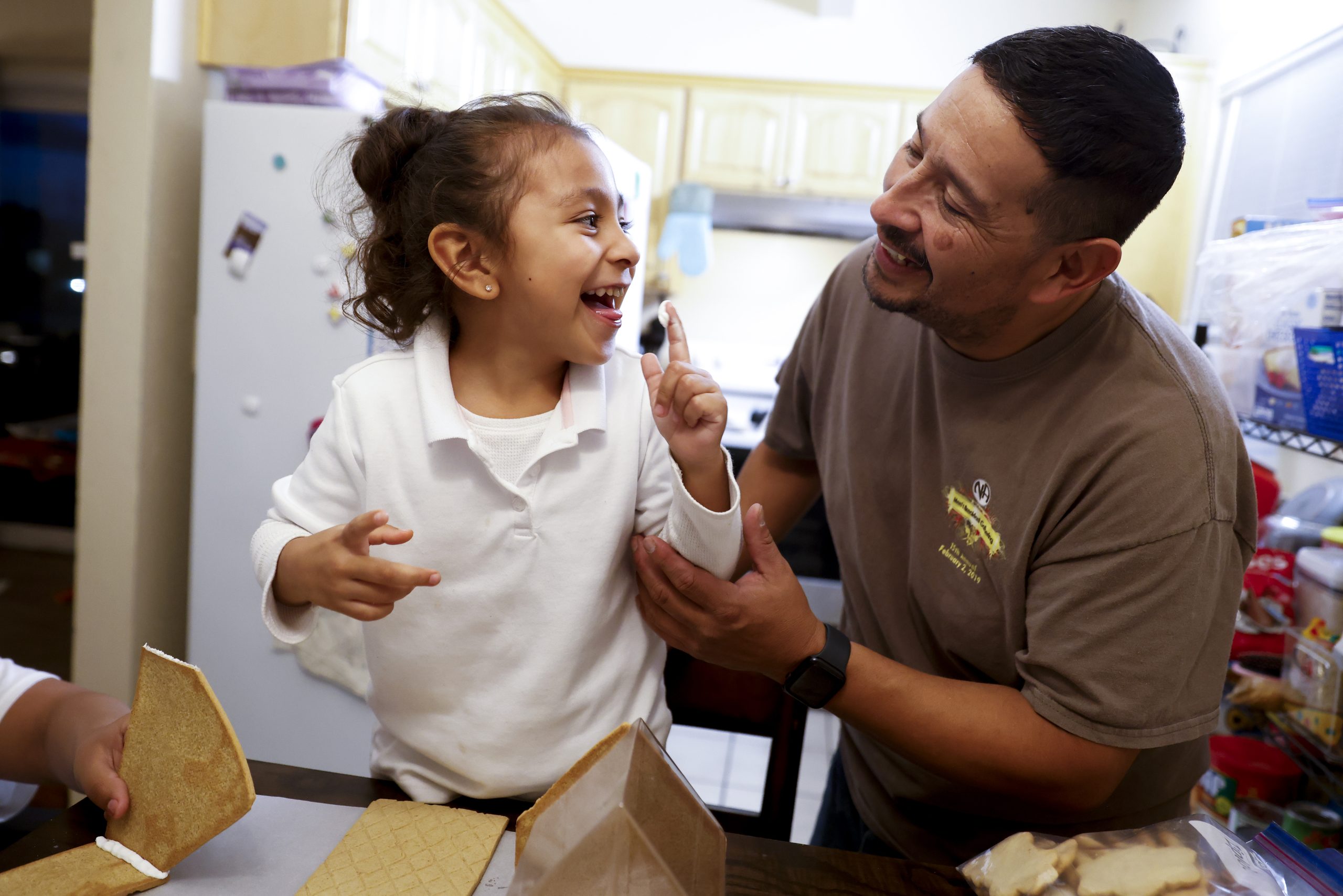
At Season of Sharing Fund, we believe that an unexpected financial crisis should never mean losing your home. Preventing homelessness isn’t just kind—it’s also the most effective way to keep our communities thriving. 100% of your donation keeps Bay Area residents housed, cared for and nourished.
